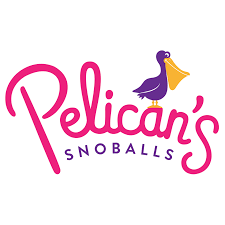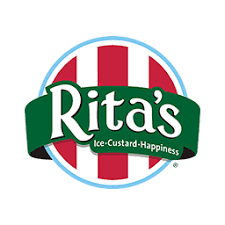Pelican’s Snoballs Franchise in 2025: Costs, Fee & FDD
Explore the investment potential of Pelican’s Snoballs, a rapidly growing franchise with over 200 locations. Learn about costs, earnings, and the key factors that could impact your success as a franchisee.
Table of Contents:
Pelican’s Snoballs is a delightful franchise that brings a little taste of New Orleans to neighborhoods across the U.S. Founded in 2001 by Randall Wright and his wife, the brand quickly became known for its vibrant atmosphere and, of course, its irresistible snoballs. Inspired by the New Orleans tradition of finely shaved ice topped with a variety of sweet syrups, Pelican’s Snoballs offers a unique and fun dessert experience that has become a favorite treat for families, kids, and anyone with a sweet tooth.
At its core, Pelican’s Snoballs serves up a wide variety of snoballs, with over 100 flavors ranging from classic cherry and blue raspberry to more adventurous options like egg custard and wedding cake. They also offer toppings like cream and gummy bears to elevate the experience. The franchise caters primarily to families and communities, positioning itself as a go-to spot for a refreshing treat on a hot day, a post-game celebration, or just a fun outing. The brand’s playful, beach-themed locations are designed to create a relaxed, vacation-like atmosphere that appeals to both young and old alike.
Pelican’s Snoballs has grown significantly since its humble beginnings, now boasting over 200 locations across more than 20 states in the U.S. This rapid expansion speaks to the popularity of the brand and its ability to adapt its simple yet beloved product to various markets. The franchise is typically set up as a walk-up or drive-thru location, making it easy for customers to grab their snoball and enjoy it on the go. Each location serves hundreds of customers daily, especially during the warmer months, making it a high-volume business in peak season.
When it comes to support, Pelican’s Snoballs provides its franchisees with comprehensive training programs, covering everything from the art of creating the perfect snoball to managing daily operations. Franchisees are guided through site selection, build-out, and marketing strategies to ensure their success. Additionally, the franchise offers ongoing support to help owners navigate any challenges that arise, making it an attractive option for those new to the business or seasoned entrepreneurs looking to add a fun, family-friendly brand to their portfolio.
Pelican’s Snoballs Franchise Insights
- The franchise typically sees its highest customer traffic between March and September, with some locations serving up to 500 customers a day during peak season.
- Pelican’s Snoballs franchisees benefit from a straightforward operational model that requires minimal staffing, often running smoothly with just two to four employees per location.
- Pelican’s Snoballs boasts over 200 locations across 20+ states, making it a rapidly growing franchise in the dessert industry.
Pelican’s Snoballs Franchise Key indicators
Growth YOY (%)
5%
vs industry 1%
Total U.S. Franchised Units
202
3-Year Failure Rate
4%
vs industry 11%
Sales-to-Investment ratio
0.8:1
How much does it cost to open a Pelican’s Snoballs franchise?
Understanding the potential investment size and capital requirements is crucial when considering opening a Pelican’s Snoballs franchise. These financial commitments, including initial franchise fees, equipment costs, and ongoing operational expenses, impact the feasibility and profitability of the venture. Thoroughly evaluating these factors ensures that potential franchisees are prepared for the financial responsibilities and can make informed decisions about their ability to sustain and grow the business, ultimately contributing to long-term success.
Min & Max Investment
Opening a Pelican’s Snoballs franchise involves several key costs, which are outlined in Item 7 of the Franchise Disclosure Document (FDD). You can see a breakdown of the costs to open a Pelican’s Snoballs below from the most recent Item 7 below:
| Type of Expenditure | Minimum Investment | Maximum Investment |
|---|---|---|
| Initial Franchise Fee | $25,000 | $25,000 |
| Lease/Rent | $1,500 | $18,000 |
| Plans and Construction | $8,000 | $80,000 |
| Concept Building Drawing | $0 | $3,000 |
| Equipment | $26,000 | $56,000 |
| POS | $2,100 | $3,000 |
| Inventory | $10,000 | $20,000 |
| Signs | $1,500 | $7,000 |
| Advertising | $100 | $2,000 |
| Insurance | $3,000 | $6,400 |
| Training Expenses | $1,000 | $4,000 |
| Business Licenses | $50 | $200 |
| Professional Fees | $500 | $3,000 |
| Additional Funds (3 Months) | $0 | $3,000 |
| Security Deposits | $0 | $200 |
| Total | $81,750 | $230,800 |
Item 7 in the Franchise Disclosure Document (FDD) is the “Estimated Initial Investment” section. It outlines the total costs a franchisee can expect to incur when starting a franchise, including the initial franchise fee, equipment, inventory, real estate, and other startup expenses. This section is crucial because it provides potential franchisees with a detailed understanding of the financial commitment required, helping them assess affordability and plan their investment strategy effectively.
Required Capital
To open a Pelican’s Snoballs franchise, the required capital involves both the initial investment costs and a net worth requirement set by the franchise. Let’s take a closer look below:
- Initial Investment The total estimated initial investment for a Pelican’s Snoballs franchise ranges from approximately $82,000 to $231,000. This includes the franchise fee, build-out costs, equipment, initial inventory, and other startup expenses.
- Liquid Assets Requirement Pelican’s Snoballs typically requires franchisees to have a minimum of $20,000 to $50,000 in liquid assets. This ensures that the franchisee has sufficient funds to cover early operational expenses and unforeseen costs.
- Net Worth Requirement While there isn’t a strict net worth requirement publicly stated for Pelican’s Snoballs, it’s generally advisable for franchisees to have a net worth that can support both the initial investment and provide financial stability. A recommended net worth for this type of investment would likely be in the range of $100,000 to $300,000, but this can vary depending on individual circumstances.
How much does a Pelican’s Snoballs franchise owner make?
Calculating the salary of a Pelican’s Snoballs franchise owner involves analyzing gross sales to determine total revenue, assessing operational efficiency to understand profit margins, and accounting for franchisor fees and additional expenses such as rent, utilities, and payroll. Effective management of these factors can significantly impact the profitability and financial success of a Pelican’s Snoballs franchise owner. This comprehensive financial analysis helps estimate net profits, from which the owner’s salary can be derived. A clear understanding of these factors ensures accurate salary projections and financial planning for sustainable business operations.
Pelican’s Snoballs Revenue & Gross Sales
In 2023, Pelican’s Snoballs franchises achieved a gross sales figure of $125,900, which reflects a 10% decrease from the previous year. Despite the decline, the franchise continues to demonstrate its appeal, particularly in warmer regions, where it remains a beloved destination for a refreshing treat. For the Pelican’s Snoballs model, we can assume that it is operated semi-absentee with an employee doing the work with little oversight. Estimated earnings are roughly $40,000 based on this model. These figures highlight the need for franchisees to carefully manage costs and optimize operations to maintain profitability.
Which key factors impact the average revenue performance of Pelican’s Snoballs franchisees?
The decline in U.S. franchisee median gross sales revenue for Pelican’s Snoballs from 2022 to 2023 could be attributed to several factors. One likely reason is market saturation, as the franchise has rapidly expanded its locations, potentially leading to increased competition among franchisees in close proximity. Additionally, changing consumer preferences or economic conditions, such as inflation and reduced discretionary spending, could have impacted customers’ willingness to spend on non-essential treats like snoballs. Weather patterns might also play a role, as colder or wetter seasons could reduce foot traffic to these primarily outdoor, warm-weather-focused locations. Lastly, operational challenges, such as rising costs of ingredients and labor, might have squeezed profit margins, further contributing to the decline in sales revenue.
Pelican’s Snoballs Franchise Operational Costs
When opening a Pelican’s Snoballs franchise, several key ongoing operational costs should be considered:
- Lease/Rent Monthly payments for the location, whether it’s a walk-up stand, drive-thru, or storefront.
- Utilities Regular expenses for electricity, water, and other utilities required to run the business.
- Inventory Costs for syrups, ice, cups, and other supplies needed to produce snoballs.
- Labor Wages for employees, including part-time and seasonal workers.
- Marketing Ongoing marketing and advertising expenses to promote the business locally.
- Maintenance Regular maintenance and repairs for equipment and the location.
- Insurance Liability insurance and other necessary business insurances.
- Technology Costs related to point-of-sale systems, software subscriptions, and internet services.
These costs can vary based on location, size of the operation, and specific agreements with the franchisor.
Pelican’s Snoballs Franchise Fees
When considering opening a Pelican’s Snoballs franchise, it’s important to be aware of the ongoing fees that are part of the operational costs. These fees can impact your overall profitability and should be factored into your financial planning. Here’s a breakdown of the key fees:
- Royalty Fee 8% of Gross Sales, due monthly on the 15th. This fee covers the franchisor’s ongoing support and use of the brand. The franchisor may require more frequent payments, possibly on a weekly basis. Gross Sales include all revenue from services, products, and related income, excluding sales taxes.
- Transfer Fee Up to $10,000, due at the time of the proposed transfer. This fee covers the costs incurred by the franchisor, including legal, accounting, and training expenses, when transferring ownership of the franchise.
- Technology Fee Up to $300 per month, due on the 15th of each month or paid annually in advance. This fee is for system-wide technology costs and expenses.
- Regional Fund Contribution If established, 1-2% of Gross Sales, due monthly on the 15th. This contribution goes toward a regional marketing fund if one is set up in your geographic area, with equal voting power for both franchised and company-owned stores.
It’s important to note that there might be additional fees or costs associated with running the franchise, so it’s essential to review the franchise disclosure document (FDD) thoroughly to understand all financial obligations.
Pelican’s Snoballs Franchise Earnings
In 2023, the median gross sales for a franchise were approximately $125,900. For a semi-absentee owner, the estimated earnings (EBITDA) of roughly $40,000. This suggests that after accounting for operational costs and fees, franchisees can expect to retain a significant portion of their revenue, although the profit margin may be relatively modest given the gross sales figure.
Operating a Pelican’s Snoballs franchise under a semi-absentee model is the expected norm in this business model. Of course, actual profits will vary depending on factors such as location, operating efficiency, and local market conditions.
How to Open a Pelican’s Snoballs Franchise
Becoming a Pelican’s Snoballs franchisee involves several key steps, from the initial inquiry to the grand opening of your business. Here’s an overview of the process:
- Initial Inquiry You or your franchise specialist submits an initial inquiry basic information about your interest and background. You should also conduct thorough research on the franchise, including seeing all of the information available on the Vetted Biz franchise intelligence platform, including access to the most recent Franchise Disclosure Document (FDD).
- Application and Financial Review After your inquiry, you’ll complete a franchise application, which includes a financial assessment to ensure you meet the required capital, liquid assets, and net worth thresholds. This step may also involve an interview to discuss your goals and qualifications.
- Discovery Day Many franchises, including Pelican’s Snoballs, invite prospective franchisees to a Discovery Day. This event allows you to visit their headquarters, meet the corporate team, and get a closer look at the operations and culture of the franchise.
- Franchise Agreement If both parties are satisfied after Discovery Day, you’ll sign the franchise agreement. This legal contract formalizes your commitment to becoming a franchisee and outlines the terms and conditions of your partnership with Pelican’s Snoballs.
- Site Selection and Build-Out With the franchise agreement in place, you’ll work with the franchisor to choose a location for your business. Once a site is selected, the build-out process begins, which includes constructing or renovating the space to meet brand standards.
- Training Before opening, you and your key staff will undergo comprehensive training provided by Pelican’s Snoballs. This training covers everything from daily operations and customer service to marketing and financial management.
- Pre-Opening Preparations As the opening day approaches, you’ll focus on final preparations, including stocking inventory, hiring and training staff, and conducting local marketing to build awareness.
- Grand Opening Finally, with everything in place, you’ll open your Pelican’s Snoballs franchise to the public. The franchisor may provide support during the launch period to ensure a smooth start.
Pros & Cons
Pros
Low Initial Investment: Compared to other franchises, Pelican’s Snoballs has a relatively low initial investment range, making it more accessible for first-time franchisees or those with limited capital.
Strong Brand Appeal: Pelican’s Snoballs is known for its fun, family-friendly atmosphere and nostalgic product, which can attract a wide customer base and create a loyal following.
Simple Operations: The business model is straightforward, focusing primarily on snoballs, which makes daily operations and inventory management simpler compared to full-service restaurants.
Seasonal Flexibility: Operating a Pelican’s Snoballs franchise can provide flexibility, particularly in warmer climates, where it can be a highly seasonal business allowing for potential downtime in the off-season.
Cons
Seasonality: The business is heavily dependent on warm weather, which can limit sales during cooler months and make revenue less consistent throughout the year.
Limited Product Offering: With a focus primarily on snoballs, the franchise may have limited appeal outside its niche, which could restrict customer diversity and sales growth.
Market Saturation: As the franchise continues to expand, there may be increased competition between locations, potentially affecting your franchise’s sales performance.
Lower Earnings Potential: The earnings for franchisees, especially those operating in a semi-absentee model, are relatively modest compared to some other franchise opportunities, which may not meet the financial expectations of all investors.
Ongoing Fees: As with any franchise, ongoing fees such as royalties and marketing contributions can impact profitability and need to be carefully managed.


